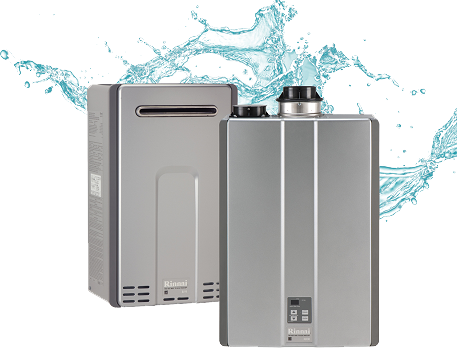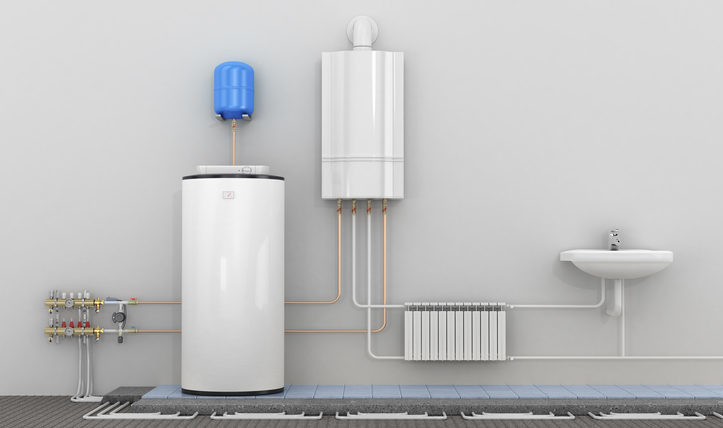Important Benefits Homeowners Achieve From Tankless Water Heaters
Important Benefits Homeowners Achieve From Tankless Water Heaters
Blog Article
They are making a few great pointers relating to Unveiling the Hot Trend: The Benefits of Tankless Water overall in the article just below.

In a globe where benefit and performance reign supreme, it's not a surprise that property owners are frequently on the lookout for smarter ways to handle their home's power consumption and convenience. One development that has gradually gotten appeal is the tankless water heater. However exactly what makes these systems attract attention from the conventional tank-based models the majority of us grew up with? Let's dive in and check out the advantages of tankless hot water heater, helping you decide if it's time to make the button in your house.
Intro
Photo this: you enter the shower after a lengthy day, expecting a calming waterfall of hot water, just to be welcomed by icy droplets because the last individual used everything up. Audio familiar? Traditional hot water heater keep a fixed quantity of hot water, meaning you're at the grace of that tank's supply. Tankless systems, on the other hand, heat water as needed. No more running out mid-shower, say goodbye to wrestling with routines simply to ensure warm water is offered.
Understanding Tankless Hot Water Heater
What Are Tankless Water Heaters?
Tankless hot water heater, often referred to as on-demand or instantaneous water heaters, offer hot water only as it's needed. Instead of storing gallons of pre-heated water, these systems kick into action the minute you turn on the faucet. Water passes through a warm exchanger, heating up in real-time, indicating you obtain an uninterrupted flow of hot water without the requirement for a large tank resting idly by.
Just how Do They Differ from Conventional Equipments?
Conventional heating units hold a tank of hot water, making use of energy to keep that storage tank at a constant temperature level. Tankless systems eliminate the standing supply, reducing squandered energy and the large impact of a huge cylinder. Basically, you're updating from a "accumulation" frame of mind to a "made-to-order" strategy.
Usual Sorts Of Tankless Units
Tankless hot water heater normally can be found in 2 varieties: gas and electrical. Gas designs often tend to deliver greater circulation prices, ideal for bigger families, while electrical versions commonly offer smaller sized homes and are generally much easier to install. Furthermore, some systems are designed for point-of-use (serving one fixture) while others can take care of the whole home's hot water needs.
Trick Advantages of Tankless Water Heaters
Power Efficiency and Expense Cost Savings
Say goodbye to heating a titan storage tank's worth of water and maintaining it cozy throughout the day. Tankless heating systems lower standby energy losses, which can decrease utility bills. While the first cost might be greater, the lasting cost savings frequently validate the financial investment.
3. Space-Saving Layout
If your home is short on storage space, removing the large tank maximizes valuable area. Tankless units are portable and can usually be installed on walls, concealed in corners, or set up in tight energy wardrobes without grabbing all of the entire area.
4. Longer Lifespan
A properly maintained tankless hot water heater can outlast its tank-based cousin. Typical storage tanks could last 10-15 years, while tankless versions can keep downing along for 20 years or more, making them a strong financial investment over time.
1. Limitless Warm Water Supply
Ever needed to schedule showers so everybody obtains their fair share of hot water? With tankless, that ends up being a distant memory. As long as the heater's flow capacity isn't surpassed, you can take back-to-back showers without becoming a popsicle.
5. Improved Water Top Quality
Storing water in a container can in some cases bring about debris build-up or a somewhat "off" preference. With tankless systems, fresh water is warmed instantly, minimizing the possibilities of sediment buildup and possibly providing cleaner-tasting water.
Considerations Before Changing
Though the advantages are engaging, it's a good idea to consider a couple of elements prior to completely committing.
Examining Your Home's Water Use Patterns
If your house all at once uses several components with high warm water need, make sure the unit's flow price satisfies your demands. Understanding your use patterns helps you choose the appropriate dimension and type of tankless heating unit.
Upkeep and Treatment Tips
Tankless systems are reasonably low maintenance, but they aren't set-it-and-forget-it home appliances.
Routine Cleansing and Descaling
Tough water minerals can accumulate in the warm exchanger, impacting efficiency. Routine descaling (typically suggested annually) keeps the unit going for peak performance.
Annual Expert Evaluations
A yearly checkup from an expert makes certain small issues are captured early. They'll analyze the unit's efficiency, search for leakages, and aid preserve ideal effectiveness.
Initial Investment Prices
Tankless heaters usually come with a greater in advance price. Between the unit itself and possible setup modifications, the first price may offer you sticker label shock. But remember to view it as a long-term investment.
Installation Requirements
Depending upon your home's facilities, you could require added electric capacity or gas line upgrades. Ensure you recognize the installation requirements and consult with a professional to prevent surprises.
Guaranteeing Proper Ventilation
For gas models, appropriate ventilation is necessary to safely get rid of exhaust gases. See to it airing vent systems are tidy and appropriately mounted to stop any type of potential safety dangers.
Contrasting Different Brands and Models
Not all tankless water heaters are created equal.
Researching Dependable Makers
Search for trusted brand names with a background of creating quality units. A trusted producer typically offers better client support and longer guarantees.
Setup: DIY or Specialist?
While some property owners cherish taking on tasks themselves, tankless installation might not be the most effective time to break out the toolbox.
Advantages and disadvantages of Do It Yourself Installment
A DIY set up can save money, however it comes with threats. Incorrect installment can bring about ineffectiveness or safety and security concerns. If you're handy and have experience, it may be viable-- however wage caution.
Reviewing Testimonials and Customer Comments
Individual testimonials and responses from next-door neighbors or buddies that have gone tankless can provide useful insights. Often, real-life experiences can be a lot more telling than advertising brochures.
When to Call a Professional Plumber
For the majority of, calling a professional makes sure every little thing's done correctly. A professional plumbing recognizes regional codes, sizing requirements, and venting criteria, minimizing the risk of mishaps.
Maximizing Effectiveness
You have actually invested in a tankless device-- currently maximize its effectiveness.
Optimum Temperature Setups
Most individuals set their devices in between 120-140 F. Changing the temperature level can enhance convenience and savings. Experiment to locate a pleasant area that does not waste energy.
Coupling With Low-Flow Fixtures
Want to stretch your device's abilities? Think about setting up low-flow showerheads and taps. They lower water usage, enabling your tankless system to deliver a consistent stream of warm water without straining.
Environmental Effect
Tankless water heaters line up with greener living goals.
Lowered Carbon Footprint
By using much less power and just home heating water as needed, tankless systems can reduce your home's carbon footprint, decreasing your environmental influence.
Conserving Natural Resources
Much less energy intake and much less squandered warm water translate into less natural deposits being made use of, an ecological win-win.
That Profits Most from Tankless Heaters?
The elegance of tankless heating units is that they can match a selection of families.
Large Family Members vs. Single Residents
Big family members might enjoy the countless warm water supply, while solitary owners value the power financial savings from not heating up a whole storage tank for just a single person's morning shower.
House Owners with Restricted Room
If your home is short on square video, losing the bulky container liberates space for various other fundamentals-- or perhaps simply much more breathing space.
Eco-Conscious Consumers
Going tankless aligns with eco-friendly values, guaranteeing you're not losing power or sources.
Future Trends in Tankless Hot Water Heater
The world of home appliances is ever-evolving, and tankless hot water heater are no exception.
Innovations in Modern technology
R&D is regularly improving warmth exchangers, making units extra efficient and sturdy. Future models may be also quieter, much more small, and better suited for varying environments.
Smart Home Assimilation
Picture changing your hot water heater's temperature through an app or getting maintenance notifies on your phone. As wise home technology breakthroughs, we'll see even more connectivity and benefit.
Final thought
Picking a tankless water heater is greater than just updating your home's warm water system; it's investing in long-lasting convenience, power efficiency, and a greener way of life. By considering your family's water use, being mindful of setup requirements, and dedicating to routine maintenance, you can enjoy a consistent stream of warm water without the luggage of a large container. As modern technology evolves, you can look forward to even smarter, extra reliable tankless options that not only make your life much easier but additionally benefit the world.
5 Benefits of Tankless Water Heaters
Save Valuable Space
Since tankless water heaters do not have a massive 40+ gallon tank of water, they are considerably smaller and can fit in more narrow spaces in your home.
If you are working with limited square footage, a tankless water heater will still provide you with the hot water you need while taking up significantly less space in your home. While the exact size of a tankless water heater varies depending on the brand, some are as small as a carry-on suitcase.
Endless Supply of Hot Water
While a traditional water heater preheats and stores your water in the tank, tankless water heaters do not rely on a reservoir system.
This means that they do not run out of hot water like traditional water heaters since they make hot water as needed. Traditional water heaters need to stop and reheat water when the tank inevitably runs out, but tankless water heaters do not have this issue.
Provide Warm Water On-Demand
As mentioned above, tankless water heaters do not preheat a certain amount of water and then store it in a massive tank to be used later. An advantage of installing a tankless water heater includes water being heated instantly whenever you turn on the faucet.
When you turn on the water, it will travel through a heat exchanger in the unit and be heated with either an electric element or a natural gas burner. Gone are the days of having to ration out your hot water to make sure that you do not run out.
Longer Life Cycle
Not only do tankless water heaters provide an endless supply of hot water for your home whenever you want it, but these units tend to have a longer lifespan than water heaters with tanks.
Tanked water heaters have an average lifespan of around 10 years, as the tank is prone to corrosion, leading to serious issues. In comparison, tankless water heaters can last for around 15 to 20 years with the proper maintenance and tune-ups.
Energy Efficient
Compared to traditional water heaters, tankless water heaters are a more energy-efficient water heating option for your home. Tank water heaters must heat and reheat the water stored in the tank throughout the day, even if you are not home.
This energy use adds up over time, leading to an increase in your energy bills and added strain on your unit. A benefit of buying a tankless water heater includes saving money since it only operates when you turn on the hot water. Since it only heats up as needed, this can decrease your energy bills and save you money in the long run.
https://callrandazzo.com/blog/5-benefits-of-tankless-water-heaters/

I discovered that piece about Six Benefits of a Tankless Hot Water Heater when exploring the web. Sharing is caring. One never knows, you might be helping someone out. Thanks a lot for taking the time to read it.
Get Started Report this page